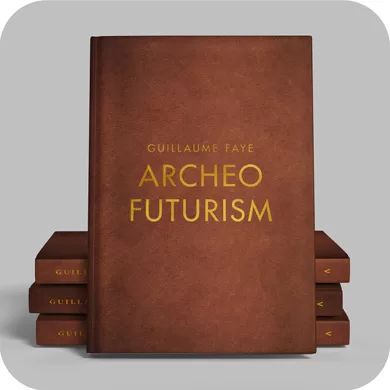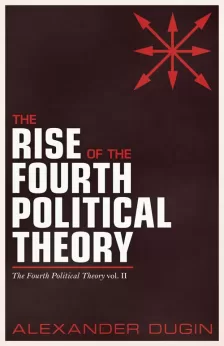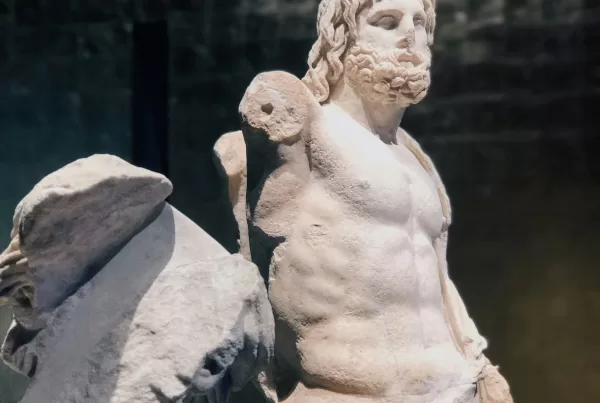Pop Con is an attempt to salvage the Conservative Party in the UK from its twin perils: that it is neither popular nor conservative. In that respect it makes sense. For electoral victory, you need votes. That’s the popular part. You also need to know what you’re about. That’s the conservative part. Both bits have been neglected by the governing Conservative Party, which can look forward to imminent electoral destruction along current trends.
In most democracies, the centre-right and centre-left party trade power every few terms. Even if the centre-right party holds power, typically the national conversation drifts leftward anyway. It is usually a matter of acceleration rather than direction; conservative governments seem to lack the popular and institutional support to do anything, well, conservative. Into this void, to reignite the heirs of Burke, Pop Con aims to step.
The leftward drift, which is everywhere apparent even as Leftists claim the opposite is true, requires explanation. The conventional wisdom suggests that conservatism grows with age. If this were true, Britain would be a bastion of conservative thought to make Enoch Powell blush. The median age in the United Kingdom is 40.7 years old; in 1950, it was 33. Nobody could accuse the Britain of 2024 of being more conservative than the Britain of 1950.
Others suggest that home ownership, or the lack of it, is the biggest influence. Yet the phenomenon of owner-occupier home ownership is reasonably recent. It became the preoccupation of the generation born in the 1950s; they were not born into it. For most of history, ordinary people have not owned the patch on which they lived. The difference is in our expectation, which is not to make light of the disaster that is unrestrained housing markets in the West, a disaster that has priced young people entirely out. If you’ve been to university, you probably heard a lot about Enclosed Lands Act being the worst act of capitalism in history, the act that privatised huge tracts of the commons. But that began centuries ago; people were conservative anyway. We must look elsewhere for answers.
Lack of families is more telling. People without families are less likely to have a stake in the future. Western women, wherever they live, are avoiding Eve’s pain. Western men, as is too often the case, are often specimens unsuitable to be fathers and husbands. There is a lack of seriousness among anybody under fifty. This is not to be confused with a lack of frivolity; there is plenty of that. There is a lack of serious thinking. Here we are closer to the problem, a problem to do with who we think we are.
Pop Con aims to recall the halcyon days of the late 1970s and early 1980s, when conservatism seemed to return from a long period in the wilderness. This wave propelled Reagan and Thatcher to the White House and Downing Street. It’s now an old playbook; equal parts free market economics and grumpy silent majority, with a dash of patriotism and a sprinkling of traditional values — within liberal parameters — to add some flavour. This kind of populism worked then, because society was, quite literally, younger. Younger people are willing to take risks; a society composed of younger people is naturally more volatile. If you want an example, look to the Congo. Perhaps there is something in that wisdom about age and conservatism, and good luck getting a society of sixty-year-olds to embrace anything new. The difference today is that the conservatism of the older generations is not recognisably conservative, the silent majority appears to no longer exist, traditional values are now Islamic, and the free market has birthed plutocracy. What was conservative then is not conservative now; but what was conservative then was dubiously conservative to begin with.
Part of the problem is certainly the etymology. Words after a while stop representing the symbol they initially served. This is true of conservatism. It has become a meme; few of our guys call themselves conservative. There have always been the libertarian types, but even they seem now to admit to a holding pattern. For a while recognisably conservative commentators bandied around the term ‘classical liberal,’ which made them sound clever and resulted in less name-calling. This was the crux of the problem; conservatism is liberalism now. It is a reactionary form of liberalism, but it remains liberalism. And liberalism is a progressive, anti-historical, utopian and prescriptive set of principles. Hegel would be smug: his dialectic is playing out within every conservative movement around the Western world. This dialectic is the tension between what conservatism once meant, and what it means today.

Conservatism today is neoliberal economics, first and foremost: it is about growth, GDP, and being ‘a good economic manager.’ Good economic management meant allowing the country to become awash with cheaply manufactured foreign goods and cheaply imported foreign peoples to keep consumption high. When conservatives push against Net Zero, it is not because they are opposing a neopagan imagining of Armageddon, even if they might privately suspect as much, but because it hampers economic growth. They think that everybody is united in this; they have internalised the general belief that the Everyman votes on his hip pocket.
The other liberal preoccupation that has infected conservatism is unrestrained individualism, which is why we have so much transgender propaganda everywhere, far in excess of the actual transgender population. There is no more visible and obvious fight against observable reality, in the name of raw personal will, than the man wearing a dress. Individualism without limits is selfish and destabilising; Edmund Burke declared we owed dues to those who came before us. Our dues are not paid in smashing up the place we’ve inherited in the name of individual freedom.
Yet smashing up the place is part and parcel of liberalism, which is at heart a destructive ideology. Liberalism, like her sibling Communism, wants to attain complete severance with the past. For this reason, as much as for any economic reason, vast hordes are imported into Western countries. In this manner you can dilute the historical stock, which means to dilute history. From all the tribes of the world, a new Tower of Babel can be built. To state that today’s elites hate the historical nations they govern is an understatement; they hate that history too. History was a time that lacked our technological baubles and yet produced the pinnacle of human achievement in the arts, something our age has no hope of replicating. It is envy as much as anything else, which is why London is busily christening trainlines ‘Windrush’ and ‘Mildmay.’ You must be constantly reminded of present elite preoccupations, even on the Tube; especially on the Tube, when you’re a captive audience. Jacob Rees-Mogg might declare that Davos Man is dead, but it certainly doesn’t look like it to me.
Ultimately conservatism — the proper form — struggles to be popular. This is because true conservatism is inegalitarian, and cannot be otherwise. Today’s liberalism is far from egalitarian, but loves to pretend it is. ‘Equality of opportunity,’ they shout, as though such a thing is even possible. By their practices in hiring and recruitment we know they do not believe their own words. In the name of political expediency — a necessity of electoral politics — conservative parties the West over have put on the dress. They are transconservatives now.
If I had to define genuine conservatism in a single sentence, it would be to match man’s law as closely as possible to natural law. Natural law is based on human nature, something we woefully misunderstand today. To the liberal, man is a malleable and changeable beast; hence all the experiments they endlessly run. Conservatives do not believe this to be true.
Proper conservatives know that man is a stubborn beast who has not changed since Socrates argued with Thrasymachus and Glaucon on the subject. If you want a single reason why ordinary people aren’t conservative anymore, it’s because they’ve bought into the hypetrain of modernity. They believe we are part of a grand new project, redefining what it means to be human, a project that is steeped in presentism and loathes the proximate and the historical. Today’s conservatives have a more down-to-earth version that incorporates select parts of wisdom past, like token hires, in the name of inclusivity. Whenever someone talks about how human nature has changed to match our lives spent sitting down, or start thumbing examples from evolutionary psychology, you know they have bought into the scientific side of the project. When they talk about our moral and political evolution — essentially Whig history — they have bought into the spiritual side of the project. Those who carry on about raw posthumanism are only the visible tip of this great iceberg, an iceberg older than the French Revolution.
Today’s political system is built on appealing to the appetites of the electorate. These appetites are about consumption, certainly, but also about amour-propre. It is not enough to be part of a general culture or polity or mass any longer; people have to be realised individuals. These realised individuals, above all else, hunger to be recognised as realised individuals: hence the man in a dress. The political establishment indulges this. It is too afraid to say no, but also fundamentally shares the same conceits.
Genuine conservatism is about curtailing appetites rather than feeding them: civilisation is the final cause of restrained passions and realised limitation. Democracies, as pointed out by Plato and others, become prey to appetites. They become bribery competitions, one reason the franchise was extended to the point of virtual meaninglessness. Past conservative types of good character opposed the inflation of the franchise not because they were selfishly hoarding political power, but because they suspected our politics would become terminally retarded and dishonest. They were right.
No society is more dishonest than a thoroughly democratic one, and a liberal democratic one is worst of all. It must persuade because force is unavailable, or at least thoroughly risky to deploy, so it becomes very good at persuasion. We become so used to lies that we don’t even notice them anymore. In that respect they are far more concerning than the obvious lies of tinpot dictators, about whom people laugh in the company of trusted friends, even if they must concede they are not free. People in the West today in large part believe many of the lies that are told, including that they are free. Burke had one for this, too: “Men of intemperate minds cannot be free. Their passions forge their fetters.”
The only freedom truly possible in life is the freedom of the mind, but we have deadened our minds, as a glance at contemporary literature betrays. This is another casualty of liberalism, the ideology of mediocrity; we struggle to admire excellence because excellence is by definition inegalitarian. Those who are undeniably excellent — say, sportsmen — must endlessly renew their demotic credentials to avoid the mob’s wrath. The lies we’ve imbibed range from the obvious ones — that diversity is strength, that men can be women — to the less obvious ones. Those are deep conceits about human nature, about what progress means, about the course of history.

Ultimately these lies are about what the Good Life is. We have inverted Plato’s wisdom and believe that happiness is obtained via that satisfaction of appetite — the ethic of the barbarian, and not the glamourised Nietzschean Conanesque barbarian — which is why our political system is oriented the way it is. This is in part because our appetites have been incentivised and monetised on a scale not possible for previous generations, one reason merchants are never fit to rule. We think we can funkopop our way to happiness, something our consumer society encourages. When this fails we line up for medications that alter our brain chemistry. Our society is very ill — desperately ill. This is because we have forgotten who we are, not merely on a national level, but on a more fundamental level. The modern person does not understand what it means to be human any longer.
These are big problems, existential problems, about which few talk and fewer have solutions. To these problems, dimly detected, Pop Con suggests itself as a feeble solution. It may engender a laugh; it is like fending off a bear with a toothbrush. But it is right about one thing, that the modern Conservative Party is a dead horse. As Peter Hitchens has been suggesting for decades, it might hasten its implosion and electoral defeat, and clear the way for a genuinely conservative replacement. I am not sure Liz Truss would enjoy being called an accelerationist.
The problem with accelerationism is the problem with consequentialist ethics in general: nobody knows the future. You might accelerate off a cliff. Certainly, a decade with the present incarnation of the Labour Party running the country uncontested should be a black pill. Ten more years of demographic replacement will seal Britain’s fate as a post-national economic zone.
To a foreigner of British stock — such as I — seeing the list of surnames rattled off as rising stars in the Conservative Party causes an involuntary flinch. Why aren’t the British running their own countries any longer? This question has dubious answers. Either we concede that they are British, in which case anybody is British, in which case nobody is British (always a problem with being British as opposed to English or Scottish or Welsh or Irish); or we concede they aren’t, which means Britain is no longer run by the British. It has become that indeterminate location on a map, something that has happened before, to which the British people have shamefully acquiesced. It is transitioning into a period not unlike Sub-Roman Britain; the Romans have left, but the Anglo-Saxons are yet to completely arrive.
As goes the man, so goes the country. You cannot expect a country to keep its identity when those within it have shed theirs. Identity crises are in vogue, whether you’re a man in a dress or not, and all political battles have identity at their core. Pop Con is an attempt to recreate a conservative populism for which the preexisting conditions no longer exist. It will at best engender another frail form of reactionary liberalism.
Western people need to remember who they are. For this they need leaders who know who they are, and what they are about. Our current institutions do not seem able to produce them, as a thoroughly liberalised society annihilates men of thumos as much as men of logos. As Rome once waited for the barbarians, we postmodern barbarians wait for Caesar.










As a man in my sixties I well remember the heady days of my youth, when myself and others of my ilk desired to rush headlong into the modern world. With my copies of Mao Tse Tung’s Little Red Book and the Communist Manifesto tucked into the back pocket of my flared Levi’s, I strode around, voluminous Afghan Coat and long hair flowing, telling anyone foolish enough to listen that the Old Order Was dead. That God was dead. That only modernity would prevail. Then, just that came to pass. Oh, what a mistake we made.